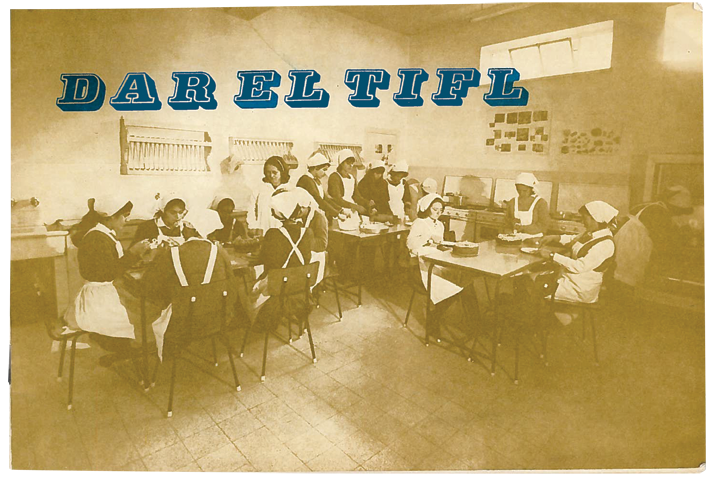
Women and Social Movements in Modern Empires since 1820 explores prominent themes in world history since 1820: conquest, colonization, settlement, resistance, and post-coloniality, as told through women’s voices. With a clear focus on bringing the voices of the colonized to the forefront, this highly-curated archive and database includes documents related to the Habsburg Empire, the Ottoman Empire, the British, French, Italian, Dutch, Russian, Japanese, and United States Empires, and settler societies in the United States, New Zealand and Australia.
Women and Social Movements in Modern Empires seeks to enlarge the scope and enhance the significance of the study of empire by creating a 75,000-page database and archive of documents that views the history of modern empires through women’s eyes. Drawn from libraries, archives, and personal collections around the world, many of these documents are available for the first time. We hope they will provide scholars and students with new perspectives on imperial history as a process of political, social, economic and cultural interactions involving indigenous and imperial people, family life, social networks and civil society as well as governments and armies.
Women’s voices can be found at all levels of imperial history. As agents of empire, women were active as missionaries, educators, health-care professionals and women’s rights advocates. As opponents of empire, women were active in nationalist and social reform movements and as conservers of culture. As people in the vanguard of cultural interaction, women often forged a middle path of innovation in education, health and family life that drew on both imperial and host cultures. We do not yet know what our exploration of women’s perspectives will find. But we do know that this project provides students and scholars with a new, systematic approach to one of the strongest currents in modern history, shedding new light on forces that were global in extent and profoundly local in impact.
Organizations and Conferences Covered: African National Congress, All India Democratic Women's Association, All India Women's Conference, Alliance of Women’s Organizations of Hungary, Association for the Civil and Political Emancipation of Romanian Women, Charitable Cooperatives of Serbian Women, DPP Gerwani, International Tribunal on Crimes Against Women, International Woman Suffrage Alliance, National Federation of Woman's Clubs of the Philippines, Ulster Women's Unionist Council, Woman's Suffrage League of Japan, Women's National Indian Association, and more
Themes: Apartheid in South Africa, colonialism, disarmament, education, empire, health, immigration and citizenship, indigenous women, national identity, political and human rights, political parties, religion, settler society, suffrage, work and class identity, and more
Content Types: biographies, books, brochures, conference proceedings, diaries, essays, government documents, interviews, letters, maps, meeting minutes, news articles, oral histories, pamphlets, periodicals, photographs, poetry, speeches, and more
Document Clusters: The project is a collaborative effort by 56 scholars, distinguished and emerging, who have gathered 41 clusters of documents in their fields of expertise. The clusters range from a few hundred to several thousand pages. Each editor also provides a scholarly essay that explores the documents she/he has assembled and places them in historical context. These sources were generated in a wide range of languages. Each document not in English (and each image and each handwritten document) is accompanied by an abstract that summarizes its significance and makes it accessible for online searches. The collection includes audio and video material as well as texts drawn from letters, diaries, newspaper articles and a wide range of publications.

Hind Husseini, “Dar El Tifl (Children’s Home)” (Annual Report, Jerusalem, Jordan, 1963-64), Countries Collection, Box 24: “Jordan,” Sophia Smith Collection, Smith College, Northampton, Massachusetts

Ufficio Società delle Nazioni, “Impiego delle donne in servizi di polizia” (Rome, Italy, 1932), Record Series “Società delle Nazioni,” Busta 126 “Comitato della Tratta delle donne e deifanciulli,” Archivio Storico Diplomatico del Ministero degli Affari Esteri.

“Report of Nipani Station for 1943 for the Presbyterian Board of Foreign Missions” (Report, Nipani, India, 1943), Foreign Missionary Vertical Files, “Melanie Updegraff,” Presbyterian Historical Society, Presbyterian Church (U.S.A.) (Philadelphia, PA).

Fadhma Amrouche, My Life Story: The Autobiography of a Berber Woman (London: Women’s Press, 1988; originally published, 1968).

”Catarina,” Oral Interview by Rachel O’ Donnell, December 2006, in Municipal Building of Chiché